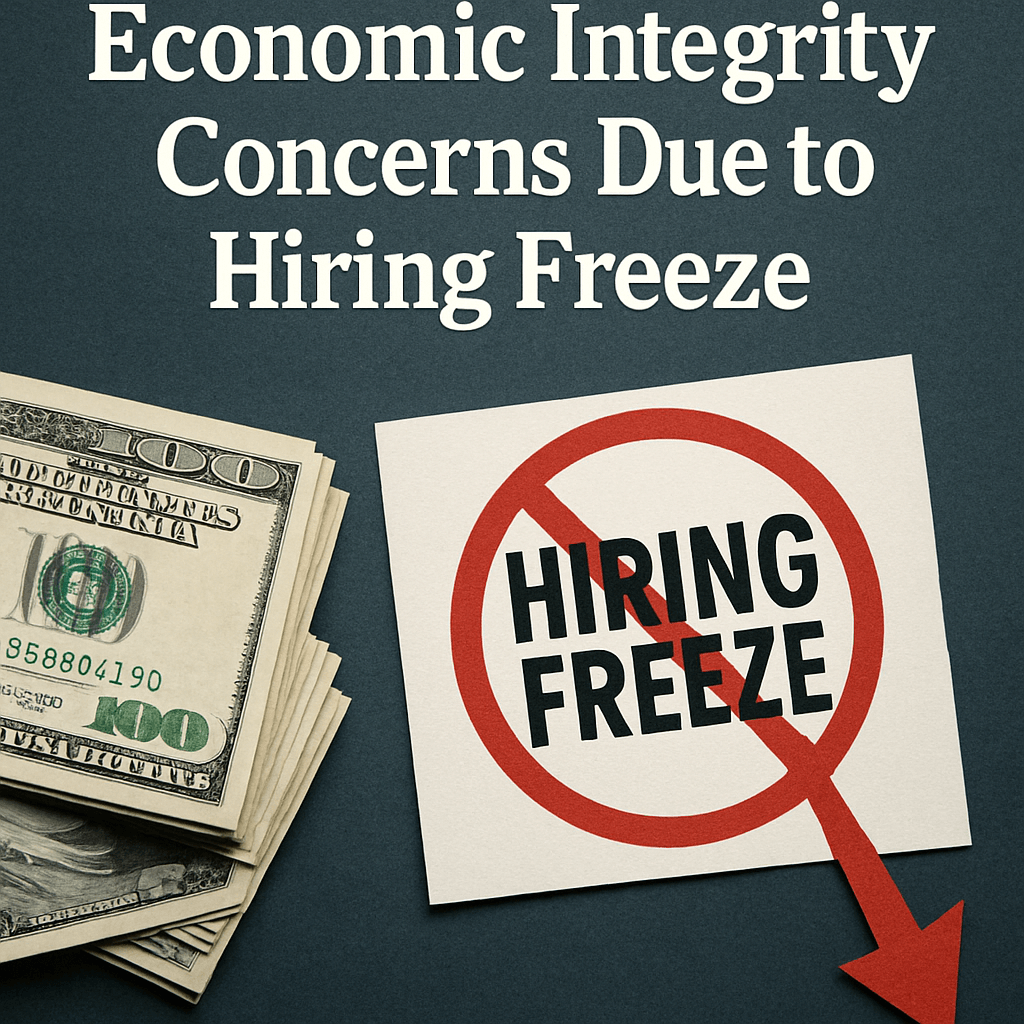Economic Integrity Concerns Due to Hiring Freeze

The ongoing hiring freeze instituted by the Trump administration has instigated significant reductions in the amount of economic data collected by the Labor Department, raising valid concerns among analysts regarding the reliability of critical inflation figures. This comes at a time when the economic landscape is particularly sensitive to inflationary pressures, significantly influenced by the administration’s trade policies.
Labor Department’s Data Collection Cuts
The Bureau of Labor Statistics (BLS), which is responsible for generating the monthly Consumer Price Index (CPI) — a pivotal indicator in economic reporting — has announced that it is substantially cutting back on its data collection efforts across various regions in the U.S. In a disclosure made on Wednesday, the BLS acknowledged that it has completely ceased collecting price data in cities such as Lincoln, Nebraska, and Provo, Utah, as of April. Furthermore, it has also suspended activities in Buffalo, New York, indicating a troubling trend toward diminished data collection.
The BLS communicated via email to economists that the reductions stem from a staffing shortfall linked directly to the hiring freeze that President Trump placed on federal employment on his inaugural day, which was subsequently extended into July. These limitations are anticipated to persist as long as the freeze remains in effect, raising the specter of incomplete or skewed economic indicators regarding inflation, which is under intense scrutiny due to ongoing trade tariffs.
The Implications of Reduced Data Collection
- Increased Data Volatility: Economists are apprehensive that the BLS’s cutbacks will lead to inflated volatility in price measurements, particularly in sectors heavily impacted by tariffs.
- Concerns Over Accuracy: The introduction of error margins due to a reduced sample can undermine data reliability. As Omir Sharif, chief economist at Inflation Insights, stated, “When you have a reduced sample size, it introduces more error into the estimate.” This potentially affects inflation readings and could mislead policymakers.
- PPI Changes: In addition to cuts in CPI data, the BLS has also discontinued the collection of wholesale prices across approximately 350 categories that contribute to the Producer Price Index (PPI). The PPI serves as an early indicator of consumer price changes, and its compromise could hinder assessments of future inflation scenarios.
Context of Economic Conditions
The BLS’s budgetary constraints and operational adjustments occur amidst a climate of increased economic uncertainty further exacerbated by the Trump administration’s tariff policies. The Federal Reserve has consistently highlighted the lack of clarity in economic forecasts as a key factor stalling additional interest rate cuts following several reductions late last year. Particularly, the unpredictable outcomes of tariffs on imports are expected to manifest most energetically in consumer prices, making comprehensive data critical.
Experts’ Perspectives
Economist Alan Detmeister from UBS expressed concern over continued cuts stating, “If these types of cuts continue, they will degrade the reliability and efficacy of these statistical agencies.” The BLS has insisted that the cutbacks will have minimal impact on the overall inflation data; however, evidence remains scant to support this position.
Statistical methodologies rely on extensive data collection from diverse sources. Currently, around 60% of the pricing data for inflation metrics is gathered through in-person visits to retail outlets, while 35% are collected online and 5% through telephonic surveys. A shrinkage in these sources could yield notable discrepancies in reported figures.
Conclusion: The Road Ahead
While the BLS plays a crucial role in informing policy decisions based on inflation figures, it must navigate budget cuts and staffing shortages to maintain data integrity. Observers worry these measures will impair the government’s ability to provide accurate economic assessments when clarity is most needed. As pressures from tariffs ripple through the economy, the significance of maintaining rigorous data collection systems becomes even more critical.
“Accurate data is the backbone of sound economic policy,” Sharif emphasizes, reminding stakeholders of the importance of robust data in forecasting future trends.
Source: fortune